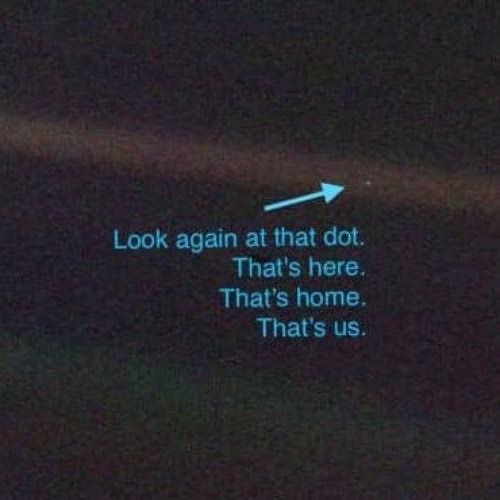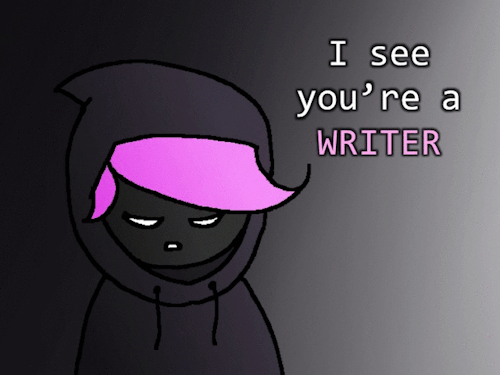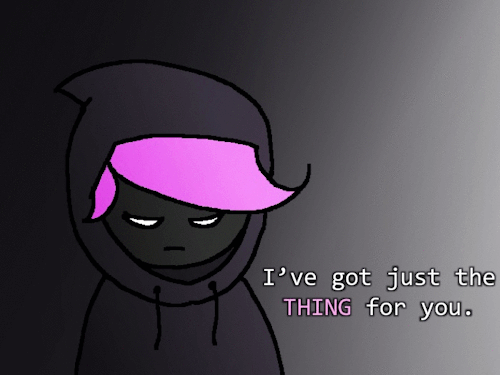Me Studying For My Math Exam Like
Me studying for my math exam like

More Posts from Boozedcowboy and Others










we are the universe experiencing itself
the bitch is back, bitches



So, let me guess– you just started a new book, right? And you’re stumped. You have no idea how much an AK47 goes for nowadays. I get ya, cousin. Tough world we live in. A writer’s gotta know, but them NSA hounds are after ya 24/7. I know, cousin, I know. If there was only a way to find out all of this rather edgy information without getting yourself in trouble…
You’re in luck, cousin. I have just the thing for ya.
It’s called Havocscope. It’s got information and prices for all sorts of edgy information. Ever wondered how much cocaine costs by the gram, or how much a kidney sells for, or (worst of all) how much it costs to hire an assassin?
I got your back, cousin. Just head over to Havocscope.
((PS: In case you’re wondering, Havocscope is a database full of information regarding the criminal underworld. The information you will find there has been taken from newspapers and police reports. It’s perfectly legal, no need to worry about the NSA hounds, cousin ;p))
Want more writerly content? Follow maxkirin.tumblr.com!

Mathematics is so beautiful and creative, I truly believe the way we are taught in schools ruins the appreciation towards subjects
(I can’t find the original post, I’ve had this saved for a while)
You know what. I’m starting a new aesthetic, population me.
Romantic Science, AKA Dark Academia for STEM people.
Thrifting a lab coat and embroidering it with your initials and a little insignia, whose significance is known to you and your lab partner only
Watching The Theory of Everything and The Imitation Game and Hidden Figures and basically every movie about historical scientists and mathematicians you can find
Decorating your desk with old slide rules and vintage lab equipment. Your prize possession is a set of vintage lenses you found at a thrift store
Wanting an articulated human skeleton far, far too much
Getting a set of (brand new, NOT thrifted, be safe ppl) beakers to drink from, and putting them directly onto your stovetop to boil water for tea or coffee, because borosilicate glass can survive anything.
Secretly relating far too much to Henry Jekyll and Victor Frankenstein, because you too want to do a gay little science experiment that challenges god.
Thunderstorms and late nights in the lab, the light of the Bunsen burner glistening off of your flasks and scribbled chalkboard equations
Papering your walls with vintage scientific diagrams; even if you know that our understanding of the world has evolved since they were made, looking back at scientific history is amazing
Writing code late at night and feeling, in some metaphysical way, as though Ada Lovelace herself is with you in spirit
Being far, FAR too obsessed with the concept of emergent ai sentience and how it has the potential to be Frankenstein irl
Looking through a telescope on clear nights, whispering the names of the constellations and stars, painting a star chart on your ceiling in a burst of creative inspiration
Collecting and mounting samples from everywhere you can think of to pore over in an antique microscope
Bringing a field journal wherever you go, learning how to draw and label botanical samples, preserving plants and flowers for study later
Dreaming of what undiscovered mysteries lie in the deepest depths of the sea, feeling the thrill of discovery whenever you learn about a new species and one day hoping to discover one yourself
Just. Romanticise STEM.





the folklore studies students
telling stories on long winter nights
a reverence for information passed down from generation to generation
the original grimm’s fairytales on your bookshelf
being fascinated by oral forms of storytelling
fighting to have the importance of folklore traditions recognized, rather than dismissed
the warmth of human conversation
comparing various communities and cultures
a love for the art of storytelling
understanding the importance, through context, of seemingly trivial traditions
studying anthropology and literature to supplement your work
the gentle flickering of a candle flame
appreciating the whimsical details of life
folklore as a vehicle for reflecting on the world
analyzing the messages behind myths and fables
the power of cultural heritage to counteract oppression
a stack of folklore anthologies with your favorite pages marked
finding deep significance in a simple legend or story
wanting to make folk culture and traditions more widely recognized and understood
examining the many different versions of a single tale
a fascination with all forms of communication and expression
Klaus Hargreeves, legendary
You are trapped in an elevator with the person on your lockscreen. Who is it?
Reblog with who you get stuck with~
Subjects that belong in academia proletaria (and should be more appreciated):
Religious Studies - theology, polytheism, ancient evidence of religion in Cape Town cave paintings, timelines of Zoroastrianism and Judaism, Animism and Taoism, Yoruba and Zulu. Respectful visits to Mosques and Temples, puzzling your own spirituality together piece by piece or not at all, never loving the study of it any the less
Geography - glaciers, entire ecosystems in decomposing logs on the forest floor, wildfires and serotinous pine cones, how the Himalayas themselves have stopped wars - documentaries and encyclopaedias, memorised walking routes through rainy heathlands, the scrappy camaraderie of the university mountaineering society and a devotion to the breadth of learning that academics so often dismiss as the generalist’s science
Language - Mandarin, Arabic, Russian, Hindi, Amharic, Portuguese - the dialect of the changing modern world and the roots of the very essence of communication deep in history, audiobooks you can hardly keep up with and pocket books stuffed full of vocabulary
Civil Engineering - bridges, train tracks, redbrick and brutalism - drawing out entire towns in a notebook, scale models and the smell of fresh paint, a wardrobe very clearly divided into “clothes I have already ruined” and “clothes people are surprised to see me in because they aren’t covered in oil or superglue”, a good pair of boots
Education - having loved your subject so much that you couldn’t bear to leave education behind, seeing great things for the next generation even if they don’t quite know where they’re going yet, backpacks full of books to mark and nostalgic home-town teaching placements, a bad photo on your lanyard and students hanging back after class to talk (even when its sixth period and getting dark)
Social Policy, social work - setting off lively debates in the local state school on one day, and speaking quietly with an angry kid while the rain falls outside your office window on another - protecting libraries, community meetings, union strikes and non-gov organisations, posters made with the help of local youth groups and jackets with “the young are at the gates” stitched across the chest
Subjects that still belong in academia proletaria even if they are already appreciated:
Literature and poetry, of course, don’t let them make you think these are out of your reach or disregard their romanticism. War poems, American literature, Anne Carson’s Antigone and the joy of reading books that indulge just a little on your childish side, experiencing again the ability to read books like breathing air as you did when you were young (the bone clocks by David Mitchell (READ IT!!))
Mathematics, thinking in numbers and seeing patterns everywhere. Adding up your late-night corner-shop haul sum in your head before you see the numbers on the cash register, harbouring a strange attachment to prime numbers, the careful chronology of a formula breaking numbers into their hidden parts down the side of your page (lots of pencil shavings)
Music, picking up an instrument in a high school music tech cupboard and never putting it down again, finding tutoring where you can and vehemently keeping up with the kids who took lessons since they were six, scratching out compositions on printer-paper manuscript and knowing the garageband software inside out. “Play me a song to set me free, nobody writes them like they used to so it may as well be me”
Art, We All Hate Damien Hirst, sort of getting what the Dadaists where going for at this point, borrowing (stealing) materials from the department and stepping in paint, genuinely compelling photography and a friendly relationship with the local photo printing shop in town, sometimes taking things too seriously but more often not taking them seriously enough, CARBON PAPER !!
History - the brilliant “beware of the dog” mosaic in Pompeii, Italy, Horrible Histories songs, an unusual depth of knowledge to do with the Great Fire of London, mental maps of historical museums and books about everything from Genghis Khan to the Six Day War. Digging up the time capsule you buried when you were 11 because you put that CD you really loved in and want it back even though you had hoped it would outlast the centuries
“Find something you love to do and then… do it for the rest of your life.”
seeing someone that looks like the character you've created hits different every time
Free Education Resource List
Coursera - a generally good platform, from what I’ve heard. Like most other things, you can’t get actual certificates for free, but the courses *usually* are. Here’s a list of the ~1400 courses where everything but the certificate is free. This list has some pretty enticing courses, like an intro to classical music composition, Greek and Roman mythology, Russian history, astronomy, physical chemistry, and a lot more. The enrollment option you want is called Full Course, No Certificate.
YouTube - Never underestimate the power of things most people have access to. YouTube is an incredibaly powerful tool when it comes to learning things, particularly for things like science and math. My favorite educational channel is Crash Course, which might sound cliché because literally every AP World History class ever uses them, but I’ve literally spent hours watching their videos and taking notes. Just watching a bit of the biology series got me to test out of a lesson in my online bio course this year, which was super helpful.
Another good resource on YouTube is anything art. My favorite surprisingly education channel for drawing specifically is DrawingWiffWaffles, because she explains what she’s doing and why as she’s doing it.
Wikihow - another good resource people make over look because it seems obvious. Material on here I would cross reference with something else, because this can be edited by anyone (I’m pretty sure) and it can get a little shady, but I know there was a physics article that helped me understand electrons so much better.
Math Is Fun - a really solid, simple resource for math, particularly if you struggle a lot. Don’t be fooled by the simplicity of the site and their use of comic sans, there’s quite a lot of information to be found here. It helped me learn calculus, of all things.
Wikipedia - Once again, since anyone can edit this I would cross reference the information you get here with something else, but in all honesty this Wikipedia is my go to for literally everything. There’s unbridled power and pure, unabridged knowledge here, and I will milk it for everything it’s worth. I’ve used Wikipedia for everything from factoring quadratic equations (something I have a strange amount of trouble understanding) to astrobiology to linguistics to the Bohemian Reformation (which resulted in me writing an essay for my history teacher that *almost* saved my grade).
Local libraries are also usually very good centers for learning. I know the one in my town holds a lot of in-person classes (not at the moment) and provides card-holders with a free membership to Universal Class as well as some other online education platforms.
Anyone and everyone can reblog with stuff I missed!
-
 boozedcowboy reblogged this · 3 years ago
boozedcowboy reblogged this · 3 years ago -
 boozedcowboy liked this · 3 years ago
boozedcowboy liked this · 3 years ago -
 l-pushed-jake-down-the-hill liked this · 3 years ago
l-pushed-jake-down-the-hill liked this · 3 years ago

Tim | it/they/he | INFJ | chaotic evil | ravenclaw | here for a good time not for a long time
184 posts